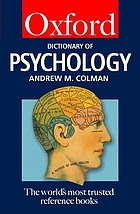COMM 300 - Principles of Communication: Getting Started
Getting Started
Deciding on a topic for your communication class can be overwhelming, since the field covers so many areas: psychology, business, sociology, media, etc. You may want to focus on a topic like "nonverbal communication", but it's a big topic. For example, the topics below have to do with nonverbal communication:
- Self-presentation
- Sending accuracy
- Deception
- Emotional Intelligence
And the list goes on.
To make your topic manageable, you should begin by getting an overview of your subject. Reading overviews will not only give you the basics of a topic, it will give you ideas on what areas you'd like to write about.
Overviews
Overview Resources
What kinds of resources give you an overview on a topic? Encyclopedias, bibliographies and dictionaries are a great way to start, are available online, and are searchable:
- Oxford Bibliographies - Communication: Think of this resource as a kind of one-stop shopping site for communication topics. The bibliography includes overviews, histories, identifies and explains major concepts. It also suggests books and articles for more information.
- Encyclopedia of Communication Theory: Provides a one-stop source for a comprehensive overview of communication theory, offering current descriptions of theories as well as the background issues and concepts that comprise these theories.
- The Concise Encyclopedia of Communication: Jointly published with the International Communication Association (ICA), this new concise edition presents key concepts and the most relevant head words of communication science.
- Communication Yearbook: Publishes state-of-the-discipline literature reviews and essays. It is both highly international and interdisciplinary in scope,
Need more help with coming up with a research question? Watch the video below--
Topic Development Video
This video will help you find a topic that's not too broad, not too narrow, but just right.
Background Information Video
This three-minute video shows how to find background information
Dictionaries & Encyclopedias
-
-
-
-
 Oxford Dictionary of Psychology (ebook)
by
Call Number: BF31 .C65 2009ISBN: 01986621149780198662112Also available in print. Shelves - Basement BF31 .C65 2009
Oxford Dictionary of Psychology (ebook)
by
Call Number: BF31 .C65 2009ISBN: 01986621149780198662112Also available in print. Shelves - Basement BF31 .C65 2009

